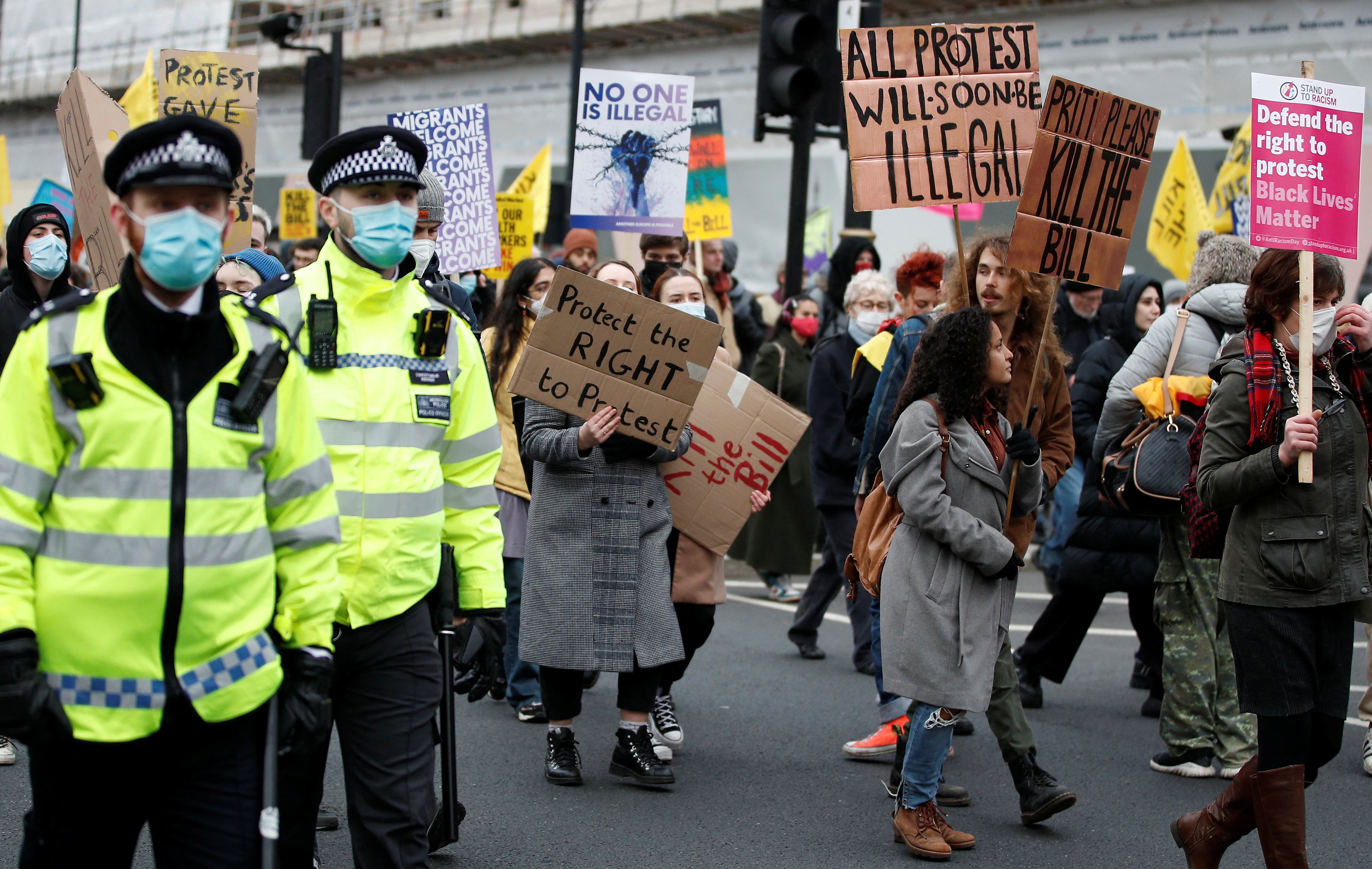Peers inflict string of defeats against government protest crackdown
New powers turned down in House of Lords include allowing officers to stop and search anyone at a protest ‘without suspicion’

Your support helps us to tell the story
From reproductive rights to climate change to Big Tech, The Independent is on the ground when the story is developing. Whether it's investigating the financials of Elon Musk's pro-Trump PAC or producing our latest documentary, 'The A Word', which shines a light on the American women fighting for reproductive rights, we know how important it is to parse out the facts from the messaging.
At such a critical moment in US history, we need reporters on the ground. Your donation allows us to keep sending journalists to speak to both sides of the story.
The Independent is trusted by Americans across the entire political spectrum. And unlike many other quality news outlets, we choose not to lock Americans out of our reporting and analysis with paywalls. We believe quality journalism should be available to everyone, paid for by those who can afford it.
Your support makes all the difference.The government has suffered a series of defeats over its attempts to crackdown on protests after peers rejected a raft of controversial measures proposed by ministers in response to action taken by Insulate Britain and others.
New powers turned down by the House of Lords included allowing police officers to stop and search anyone at a protest “without suspicion” for items used to prevent a person being moved, known as “locking-on”.
A move that would allow individuals with a history of causing serious disruption to be banned by the courts from attending certain protests was also dismissed, along with a proposal to make it an offence for a person to disrupt the operation of key national infrastructure, including airports and newspaper printers.
In a separate defeat, peers backed restricting the imposition of tougher sentences for blocking a highway to major routes and motorways rather than all roads.
The mauling of the Tory administration’s plans sets the stage for a protracted parliamentary tussle known as ping-pong, where legislation passes between the Lords and the Commons until an agreement can be reached.
Peers were strongly critical of not only the measures, but also the way they had been introduced at such a late stage of the passage of the bill, after it had already gone through the elected House.
Earlier the Lords had also defeated other contentious curbs on demonstrations proposed in the legislation, including powers to impose conditions on protests judged to be too noisy.
Stressing the need for the protest measures, home office minister Baroness Williams of Trafford argued they were “vitally important in protecting the country from the highly disruptive tactics employed by a small number of people”.
She said: “The rights to freedom of speech and assembly are a cornerstone of our democracy and this government will not shrink from defending them.
“But a responsible government, one that stands up for the rule of law, must also defend the rights and freedom of the law-abiding majority.
“Their rights cannot and must not be trampled on by a small minority of protesters, who believe they should not be answerable to the law and should be given carte blanche to cause any amount of disruption at any cost.”
But Labour frontbencher Lord Rosser pointed out that the “sweeping, significant and further controversial powers” had not been considered by the Commons and branded it an “outrageous way to legislate”.
He said: “We cannot support any of these last-minute, rushed and ill-thought-through broad powers… with the exception of approving the increased sentences for wilfully obstructing motorways and major roads.”
Green Party peer Baroness Jones of Moulsecoomb, said: “These are draconian laws that are a wider assault on our democracy.”
Independent crossbencher and prominent QC Lord Carlile of Berriew, who previously served as independent reviewer of terrorism legislation, said: “The dilution of without-suspicion stop and search powers is a menacing and dangerous measure.”
Liberal Democrat Lord Paddick, who was a deputy assistant commissioner in the Metropolitan Police, said: “If the government is determined to bring in these draconian, anti-democratic laws, reminiscent of Cold War eastern bloc police states, they should withdraw them now and introduce them as a separate bill to allow the democratically elected House time to properly consider them.”
He added: “The anti-protest measures in the original bill were dreadful. These measures and the way they have been introduced are outrageous.”
But responding, Lady Williams said: “This House has got a choice. It can stand by the British public who respect and value the right to peaceful protest but recognise that protesters should not have a free rein to trample on the rights of others.
“Or it can send a signal to the militants, who believe that their right to protest trumps all other rights and there should be no limit on the amount of disruption they cause whatever the cost to the wider public.
“The arguments deployed here tonight are about the middle classes trying to stop working people from going to work and I know where I stand on this.”


Join our commenting forum
Join thought-provoking conversations, follow other Independent readers and see their replies
Comments